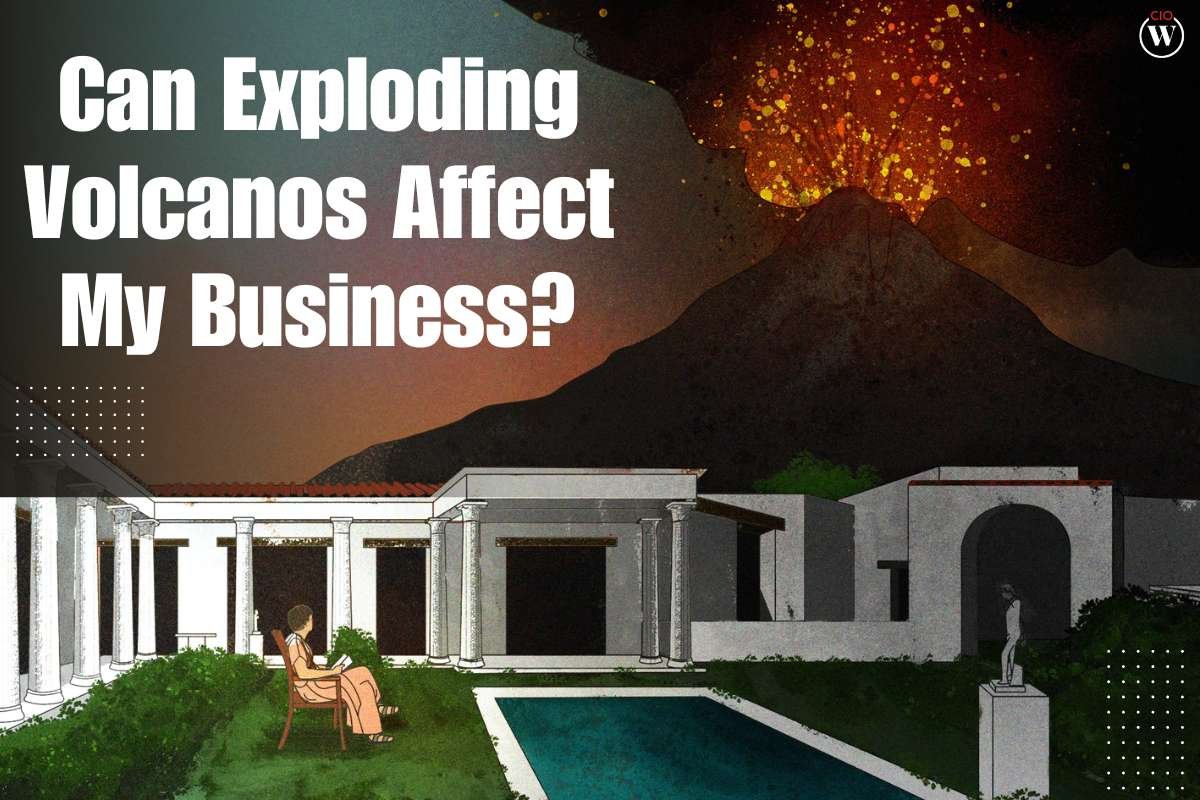Volcanoes are natural phenomena that have the power to significantly impact their surroundings. They can cause severe destruction, including property damage, loss of life, and economic disruptions. As such, businesses located near or within a volcanic region can be affected by the volatility of these geological occurrences.
This article aims to explore the impact that exploding volcanoes can have on businesses. It will examine the various ways that businesses can be affected, including physical damage, economic impact, and indirect effects, and provide advice on how businesses can prepare and mitigate the risks associated with volcanic eruptions.
Here is exploding volcano’s impact on my business;
1. Physical Damage to Business:
One of the most obvious ways that an exploding volcano can affect a business is through physical damage. Lava flows, volcanic ash, and pyroclastic flows can cause significant destruction to buildings, vehicles, and other physical assets. The severity of the damage depends on the proximity of the business to the volcano and the nature of the eruption.
For businesses located within the immediate vicinity of a volcano, the damage can be catastrophic. Lava flows can bury buildings, roads, and other infrastructure, rendering them unusable. Ash clouds can cause roof collapse, damage machinery and equipment, and contaminate water supplies. Pyroclastic flows, which are a mixture of hot gases, ash, and rock fragments, can cause widespread destruction and even death.
Even businesses located at a distance from the volcano can be affected by the physical damage caused by an eruption. Ashfall, for example, can travel long distances, affecting buildings, infrastructure, and agricultural land. The fine particles of ash can cause respiratory problems and damage machinery, including engines, causing them to malfunction or fail. Furthermore, businesses that rely on transportation, such as airlines and shipping companies, can be disrupted by the ash clouds, which can affect visibility and engine performance.
2. Economic Impact on Business:
In addition to the physical damage caused by exploding volcanoes, businesses can be severely impacted by the economic consequences of an eruption. These can include direct losses due to property damage, but also indirect losses that stem from the disruption of business activities and the broader economic effects of the eruption.

Direct economic losses can occur as a result of damage to buildings, equipment, and inventory. Rebuilding or repairing these assets can be costly and time-consuming, and businesses may be forced to suspend operations during this process. In addition, businesses may experience a loss of revenue due to the inability to access markets, customers, or suppliers. This is especially true for businesses that rely on transportation or have limited access to alternative routes or modes of transportation.
Indirect economic losses can also occur as a result of the eruption. For example, businesses may be forced to close or reduce their operations due to the evacuation of employees or the disruption of transportation routes. This can lead to lost productivity and revenue, as well as the loss of customers and market share. Additionally, businesses may experience increased costs due to the disruption of supply chains, increased insurance premiums, and higher energy costs.
Overall, the economic impact of a volcanic eruption can be significant, and businesses must take steps to prepare and mitigate the risks associated with these events.
3. Indirect Effects on Business:
In addition to the physical damage and economic impact caused by an exploding volcano, there can be other indirect effects on businesses. These can include changes in consumer behavior, shifts in market demand, and changes in government regulations and policies.
For example, in the aftermath of an eruption, consumers may be less likely to travel to the affected region, leading to a decrease in tourism and hospitality-related businesses. Additionally, businesses that rely on agricultural products may experience disruptions in supply due to the contamination of crops by volcanic ash.

Changes in market demand can also occur as a result of an eruption. For example, demand for certain products or services may decrease, while demand for others may increase, depending on the specific circumstances of the eruption. Businesses that are able to adapt quickly to these changes may be better equipped to weather the economic impact of an eruption.
Government regulations and policies can also have a significant impact on businesses in the aftermath of a volcanic eruption. For example, the government may impose restrictions on travel or require businesses to comply with new safety regulations. Additionally, government agencies may provide financial assistance to businesses affected by the eruption, or they may impose taxes or fees to cover the costs of the response and recovery efforts.
4. Preparing for Volcanic Eruptions:
Given the potential impact of exploding volcanoes on businesses, it is essential for business owners to prepare and mitigate the risks associated with these events. The following are some steps that businesses can take to prepare for a volcanic eruption:

- Conduct a Risk Assessment: Businesses should conduct a thorough risk assessment to identify the potential risks associated with a volcanic eruption. This should include an analysis of the physical risks, such as the proximity of the business to the volcano, as well as the economic and indirect risks.
- Develop a Contingency Plan: Once the risks have been identified, businesses should develop a contingency plan that outlines the steps to be taken in the event of an eruption. This should include plans for evacuating employees, protecting physical assets, and ensuring the continuity of business operations.
- Maintain Business Continuity Plans: Businesses should also maintain business continuity plans that outline the steps to be taken to ensure that critical business functions can continue in the event of an eruption. This may include having backup systems and infrastructure in place, as well as alternative modes of transportation and supply chain arrangements.
- Train Employees: Employees should be trained on contingency and business continuity plans to ensure that they understand their roles and responsibilities in the event of an eruption. This may include training on emergency procedures, evacuation protocols, and communication channels.
- Review Insurance Coverage: Businesses should review their insurance coverage to ensure that they are adequately covered for the potential risks associated with a volcanic eruption. This may include coverage for physical damage, business interruption, and liability claims.
BOTTOM LINE
Exploding volcanoes can have a significant impact on businesses, including physical damage, economic losses, and indirect effects on consumer behavior and market demand. Businesses located near or within volcanic regions must take steps to prepare and mitigate the risks associated with these events. This includes conducting a risk assessment, developing contingency and business continuity plans, training employees, and reviewing insurance coverage. By taking these steps, businesses can minimize the impact of an eruption on their operations and ensure their continued viability in the aftermath of a volcanic event.








